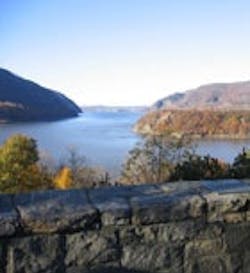States Suing EPA Over Water Transfer Loophole
Nine U.S. states and the Canadian province of Manitoba are suing the U.S. Environmental Protection Agency (EPA), accusing it of creating an “illegal loophole” in the federal Clean Water Act that threatens waterways and drinking water, the Associated Press reported. The loophole was opened with a June 9 regulation exempts the transfer of polluted water from one body of water to another, New York Attorney General Andrew Cuomo said on Oct. 2.
"Federal regulators jeopardize both our economy and our fishing, boating and outdoors way of life by allowing polluted water to be diverted into Minnesota lakes and rivers," Minnesota Attorney General Lori Swanson said in a statement.
The Oct. 2 lawsuit was filed in U.S. District Court in New York City. Joining New York in the suit are Minnesota, Connecticut, Delaware, Illinois, Maine, Michigan, Missouri, Washington and Manitoba.
Swanson's office said the EPA's Water Transfer Rule harms states such as Minnesota. For example, North Dakota determined that the rule allows it to drain water from Devil's Lake into the Cheyenne River "without any opportunity for Minnesota to comment on or oppose the discharge of the polluted waters," according to the statement. The Cheyenne flows into the Red River, which forms the boundary between Minnesota and North Dakota.
Source: Associated Press
